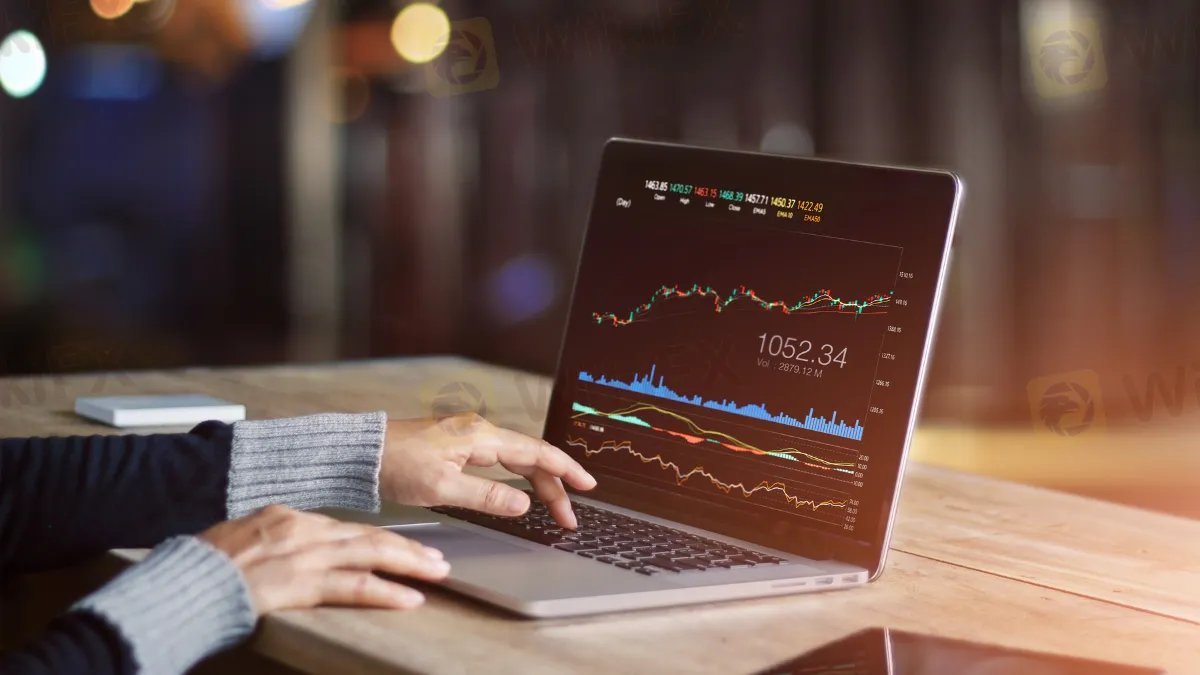简体中文
繁體中文
English
Pусский
日本語
ภาษาไทย
Tiếng Việt
Bahasa Indonesia
Español
हिन्दी
Filippiiniläinen
Français
Deutsch
Português
Türkçe
한국어
العربية
How Does AI Significantly Influence Forex Trading?
Abstract:Discover how Artificial Intelligence revolutionizes Forex trading, enhancing decision-making and user experiences across global markets

AI has transformed almost every industry, from entertainment to healthcare, and is now ingrained in almost every area of contemporary life. AI's influence on finance is extremely significant, especially in the fast-paced world of FX trading. In spite of its inherent hazards and complexity, the foreign exchange market, or forex, boasts a remarkable $1.93 quadrillion market size and $5.3 trillion in daily deals. This is largely due to low barriers to entry and strong liquidity.
An increasing proportion of successful forex traders now use AI-driven tools and algorithms to reduce these risks and improve decision-making. Trades can be executed more precisely, performance can be tracked in real-time, and large datasets may be easily analyzed by traders thanks to these technologies.
Predictive Analytics and Machine Learning
The use of machine learning-powered predictive analytics in forex is a key benefit of incorporating AI. AI is able to forecast market movements more precisely than human analysts by using complex algorithms and previous trade data. To estimate Dollar-Yen exchange rates based on a variety of data sources, such as market movements and commodity prices, Nikkei, a Japanese company, uses artificial intelligence (AI). AI showed promise in trading strategy refinement as it exceeded human projections in experiments.

Improving Experiences Focused on Users
With millennials making up a sizable number of traders, user experience is crucial in today's tech-savvy FX market. These millennials who were raised on the internet expect mobile accessibility and smooth multichannel interactions. Brokers such as Ever Forex must keep up with the times by developing cutting-edge platforms like MetaTrader5, which guarantee user-friendly interfaces and seamless transactions across platforms since mobile trading is predicted to grow from 18% to 37% in the year ahead.
Making Knowledgeable Decisions with Real-Time Data
A precise and timely use of data is essential for successful forex trading. Gathering data, determining relevance, and putting strategy into practice are challenges that many traders face; they often depend on information that is out of date or unrelated. These problems are solved by AI, which makes automated trading techniques and real-time data processing possible. Features that enable traders to maximize gains while limiting losses, such as automatic stop-loss orders, are prime examples of AI's value in reducing risks during market volatility.
Forex's Future is Being Shaped by AI
With its unmatched data insights and operational efficiency, artificial intelligence is the cornerstone of contemporary currency trading. Brokers and traders alike should embrace AI technologies widely as they develop as their integration has the potential to completely transform trading procedures. It seems that the future of forex trading is closely linked to the developments in artificial intelligence since growth and innovation are being propelled by AI-driven solutions.
In conclusion, by saying that there is no denying AI's revolutionary effect on FX trading. AI not only boosts profitability but also changes the face of business by forecasting market changes, streamlining intricate procedures, and improving user experiences. With the advancement of technology, traders who want to successfully traverse the complexities of international financial markets will probably find it essential to adopt AI-driven methods.

Disclaimer:
The views in this article only represent the author's personal views, and do not constitute investment advice on this platform. This platform does not guarantee the accuracy, completeness and timeliness of the information in the article, and will not be liable for any loss caused by the use of or reliance on the information in the article.
Read more

Silver surges past $33—are you ready for what comes next?
Silver has once again become the center of attention in global financial markets.

Japan Issues Urgent Warning on $700M Unauthorized Trades
Japan's FSA warns of $700M in unauthorized trades from phishing attacks on brokerage accounts. Cybersecurity threats continue to rise in the country.

Tradu Joins TradingView for Seamless CFD and Forex Trading
Tradu, a global trading platform, integrates with TradingView for seamless CFD and forex trading, offering transparency, tight spreads, and fast execution.

Asian Scam Operations Worth €35 Billion Spreading Globally, UN Warns
The UN report reveals the growing threat of transnational crime, driven by AI, money laundering, and scams across Asia, Africa, and Latin America.
WikiFX Broker
Latest News
eXch Exchange to Shut Down on May 1 Following Laundering Allegations
How a Viral TikTok Scam Cost a Retiree Over RM300,000
JT Capital Markets Review
FCA Proposes Simplifying Investment Cost Disclosure for Retail Investors
Fresh Look, Same Trust – INGOT Brokers Rebrands its Website
FCA Issues Alerts Against Unauthorised and Clone Firms in the UK
Consob Orders Blackout of 9 Fraudulent Financial Websites
Tradu Joins TradingView for Seamless CFD and Forex Trading
Japan Issues Urgent Warning on $700M Unauthorized Trades
Silver surges past $33—are you ready for what comes next?
Currency Calculator


